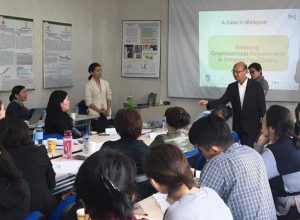
Select Page
 Significant incidents of food-borne illness and microbiological and chemical contamination have occurred in Mongolia over the past few years. Food safety management systems, regulatory frameworks, and safety inspection and research must be strengthened. This will involve creating favorable legal, economic, and organizational systems for food safety and quality. Such systems will ensure that the population has sustainable access to nutritious, hygienic food, improve control and information networks for food hygiene and sanitation, reduce the gap between urban and rural populations in terms of seasonal food access, expand agribusiness opportunities, and contribute to the achievement of short- and long-term development goals.
Significant incidents of food-borne illness and microbiological and chemical contamination have occurred in Mongolia over the past few years. Food safety management systems, regulatory frameworks, and safety inspection and research must be strengthened. This will involve creating favorable legal, economic, and organizational systems for food safety and quality. Such systems will ensure that the population has sustainable access to nutritious, hygienic food, improve control and information networks for food hygiene and sanitation, reduce the gap between urban and rural populations in terms of seasonal food access, expand agribusiness opportunities, and contribute to the achievement of short- and long-term development goals.
Funded by a special cash grant from the Ministry of Agriculture, Forestry and Fisheries of Japan, the APO, Mongolian Productivity Organization (MPO), and Mongolian Ministry of Food, Agriculture and Light Industry (MoFALI) organized a National Workshop on Capacity Building of Sustainable Food Value Chains (FVCs) for Enhanced Food Safety and Quality in Ulaanbaatar, 13–17 May 2019. The APO assigned two international resource persons, Managing Director Yong Kok Seng of QMC Resource Centre Sdn. Bhd. of Malaysia and Dean Dr. Yi-Chich Chiu of the College of Bioresources of National Ilan University of the ROC, to facilitate the workshop. They gave updates on FVC concepts; introduced methodologies for developing food safety, quality, and innovation (FSQI) frameworks to modernize FVCs; and cited examples of how digitization can transform farm production and agribusinesses.
The 88 workshop participants were involved in a wide range of FVC- and FSQI-related areas: 43 were from government, including MoFALI; 27 were farmers, producers, and traders; and 18 were providers of training and consultancy services. The action plans they developed with guidance from the resource persons focused on introducing modern FSQI processes and potential results of improvements and enhancing the productivity and competitiveness of the agrifood sector by building up reliable, safe, sustainable FVCs.
Photo: MPO